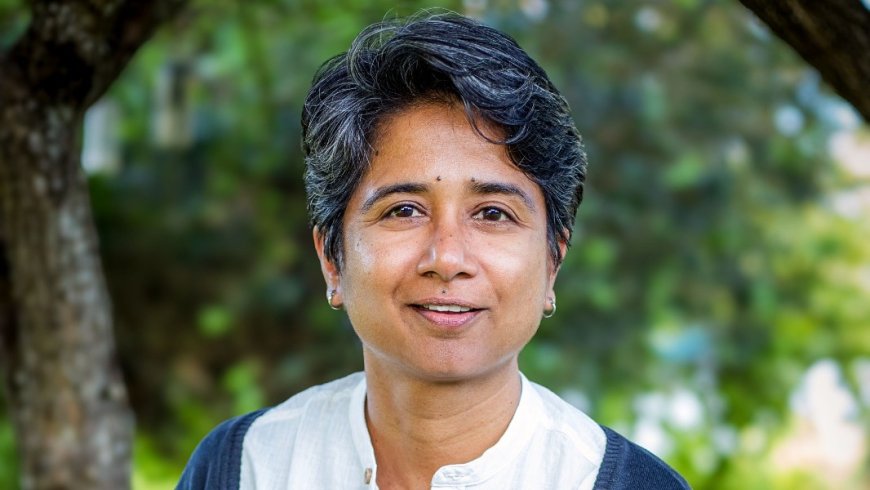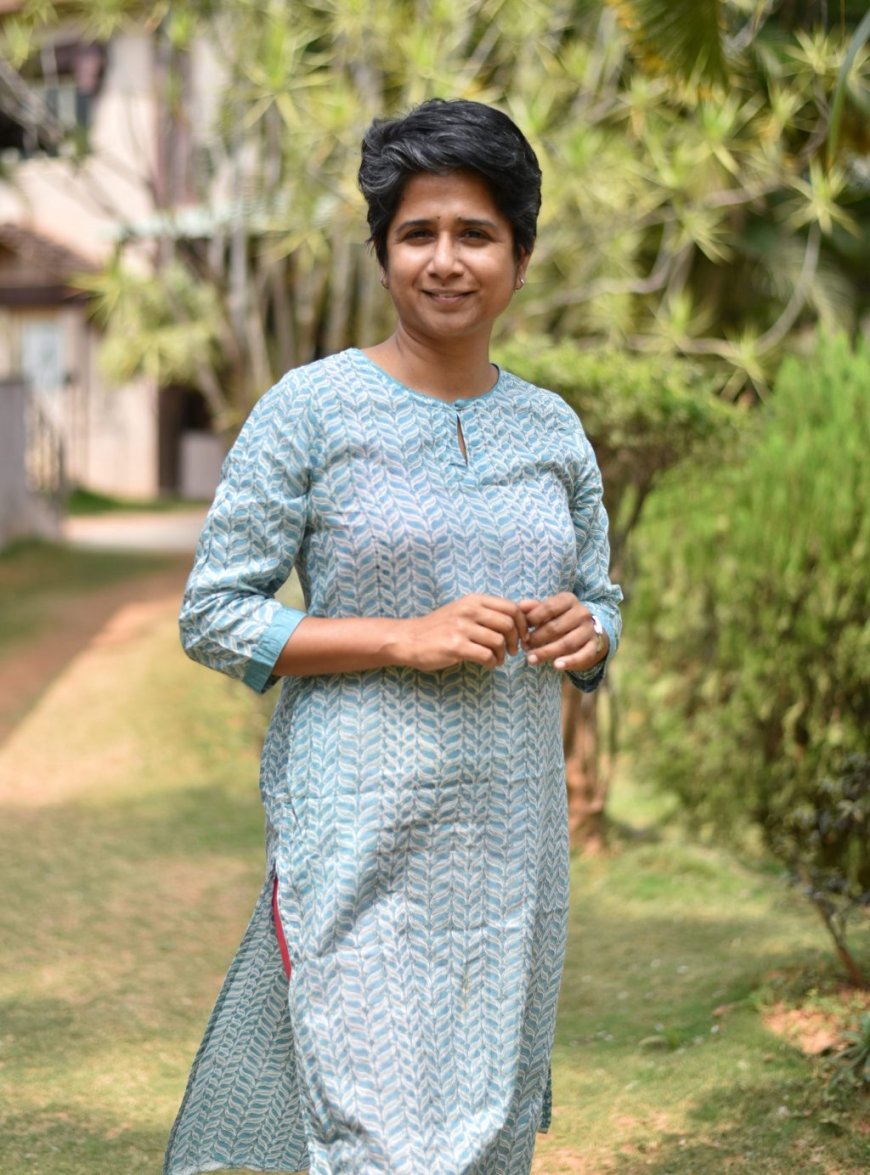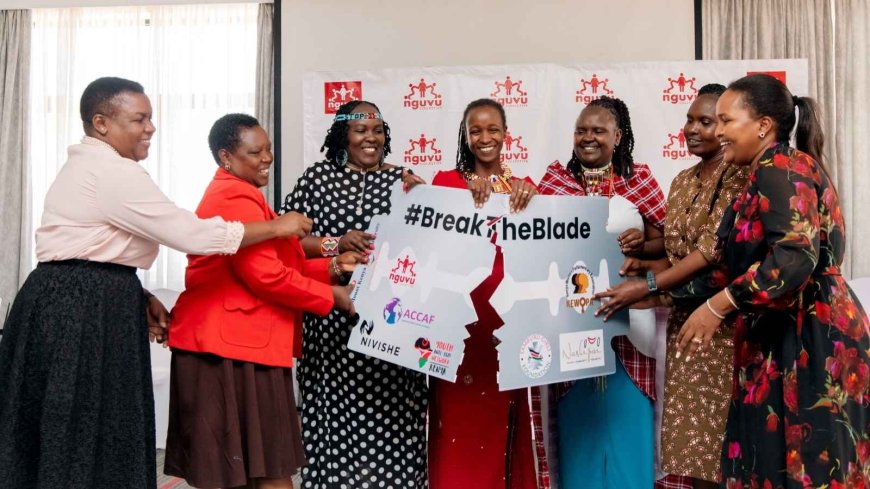Bottom Up: Nguvu Collective Quietly Building a Revolution, And It’s Working
Participation of both women and men at the forefront who have been instrumental in national conversations and social movements, amplifying the voices of underrepresented communities.

In recent years, Nguvu Collective in Kenya has built a strong cohort of change leaders dedicated to shaping powerful narratives and driving advocacy across the country.
Their efforts have led to the emergence of impactful social impact leaders who are actively engaging with policymakers through unique campaigns spanning gender rights, health, education, environment, and deeply rooted social issues like widowhood stigma and disability rights.
Participation of both women and men at the forefront who have been instrumental in national conversations and social movements, amplifying the voices of underrepresented communities.
Viral Tea sat down with Durga Nandini, the Co-Founder of Nguvu Collective, where she shared her views on why building grassroots advocates of change is essential in Kenya’s current context and how initiatives like these are inspiring a generation of changemakers, ultimately contributing to a more inclusive and hopeful future for the country.
1. How was Nguvu Collective founded, and what inspired the vision behind it?
“Nguvu” Collective, which means “Power” Collective in Swahili, is a tribute to women’s power. Our vision is to create a world where more women are in positions of social power and leadership, driving systemic change for their communities and countries through the strength of their collectives. We believe marginalised women who have lived experience of gender injustice are the best drivers of long-term positive change.
With our Launchpad program, we provide not only training in advocacy, media, and campaign strategy but also the spaces to be seen and heard. We cultivate strength in numbers because we know isolation can be crushing.

Durga Nandini - Co-Founder, Nguvu Collective. /WOMAN KENYA
Our work has proven that equipping women change leaders with storytelling, advocacy, and leadership skills will spark impactful, scalable movements.
Nguvu Collective was conceived for these women. We recognise their courage, their dedication, and their strength, not as potential, but as already existing, waiting to be bolstered and linked.
2. How do you define the role of grassroots leadership in transforming national narratives and policies in Kenya?
Grassroots leadership is the lifeblood of transformative change in Kenya. At Nguvu Collective, we’ve seen that when women closest to the issues lead the work, whether it’s gender-based violence, access to health services, or economic justice, the solutions become more sustainable and the narratives more authentic.
These leaders often come from the communities most affected by systemic inequities. By amplifying their voices and equipping them with tools to run strategic, visible campaigns, they are able to reframe public narratives and push for policy change from the ground up. This bottom-up approach shifts the power dynamic, making policy spaces more inclusive, accountable, and people-centred.
3. Nguvu Collective has worked with an inspiring cohort of change leaders. What do you look for in them, and how are they supported?
We identify women from the grassroots who are working on or exploring campaigns and have shown clear leadership, commitment, or personal connection to the issue they’re trying to address. We look for those who are ready to strengthen their strategy, story, or visibility, whether they are already leading movements or just starting out with a powerful idea. Once selected, we support them through a two-phased campaign training model.
In Phase 1, we focus on strengthening campaign strategy, storytelling, media advocacy, and decision-maker engagement.
In Phase 2, we work with standout participants to accelerate and amplify their campaigns through advanced mentorship, media engagement, and policymaker connections. Throughout, our approach is grounded in feminist values, and we customise our support to the realities of each leader’s context and community.
4. What are some of the biggest challenges grassroots leaders face in today’s Kenya, and how is Nguvu helping to overcome them?
Many grassroots leaders in Kenya face isolation, limited access to platforms, and a lack of resources or mentorship to translate their passion into impact. They are often doing the work without recognition, funding, or strategic support. The political and social environment can also be hostile, especially for women confronting entrenched power structures.
Nguvu addresses this by creating a supportive ecosystem that includes training, visibility, and practical campaign tools. We help them sharpen their strategies, build public narratives, and engage decision-makers smartly. Most importantly, we create spaces of solidarity, connecting these leaders to one another and to a wider collective of others doing similar or complementary work, so they never have to fight alone.
5. Why is it important to engage both men and women in grassroots movements focused on gender, health, and social equity?
Achieving gender, health, and social equity requires shifting cultural and systemic norms that affect all members of society. That’s why it cannot be a conversation held by or for women alone. Engaging men as allies and co-creators of change helps dismantle patriarchal structures more effectively and fosters community ownership of the solutions.
At Nguvu, we centre women’s leadership, but we also encourage inclusive organising that invites men into the work. We also have a significant number of male Change Leaders across Kenya, Nigeria, and South Africa who have been at the forefront of fighting for change on women’s and disability rights issues, systemic injustices, and human rights violations. Whether it’s through campaign storytelling, advocacy, or decision-maker engagement, we believe that collective power is strongest when everyone in the community is invested in building a just and equitable future.
6. What is next for Nguvu Collective in 2025 and beyond?
The future of Nguvu Collective is firmly grounded in hope and a vision for women's power at the grassroots. Our dream is getting bigger–moving beyond numbers, toward depth. We envision supporting 1,000 grassroots women leaders across Africa - each one with the strength of her community, her story, and her fight for justice.
We will continue to create spaces for women to come together to grow and to advocate on critical issues that affect them, through impactful campaigns. These are not just training programs; they are a place of belonging, where transformative leadership coexists with joy, laughter, healing, and strategy.
We will also place valuable tools in the hands of women leaders so they can lead research projects, amplify their stories, and advocate for their communities in ways that are truly informed by the needs of their communities. Issues like gender-based violence, menstrual equity, disability justice, and economic dignity are issues that affect families and communities as a whole. And our change leaders will be at the forefront of finding community-driven solutions.
Finally, we are building a women’s collective of bold, joyful, collaborative feminist leadership, where women do not walk alone. We will walk together, firmly, boldly and ambitiously.
7. What do you hope readers take away from learning about the movement you’re building?
We hope readers see that powerful change doesn’t only come from high offices or national headlines, it often starts with a woman in her community choosing to stand up and say, “This must change.” The movement we’re building is grounded in everyday courage, strategy, and the belief that local leadership can, and does, reshape national futures!
We invite readers to follow our work not just to witness this movement, but to support it: by resourcing it, sharing its stories, and recognising that the future of justice in Kenya depends on amplifying the voices of those most affected and most committed to the work of change.







